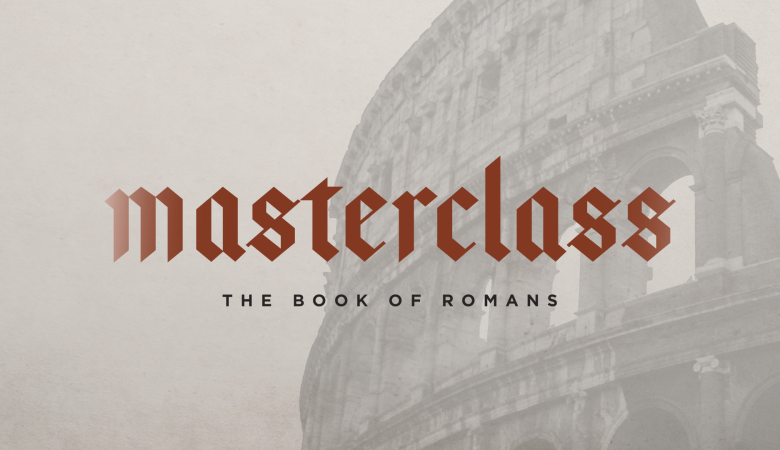Sermon Info
Summary
God calls us to live by faith. In Romans 4, Paul uses Abraham as an example of faith. Paul shows how Abraham believed God, and it was credited to Him as righteousness – and this was even before the Law. The Law doesn’t save us – faith in Jesus saves us. The Law shows us where we fall short and how we need a Savior. It’s not about religious practices like circumcision, but about a relationship with God through Jesus Christ, and the outward expression becomes baptism. Like Abraham, our faith and obedience to God impacts ourselves, our family, and generations.
Content
Understanding Important Terms
In this chapter of Romans there’s a lot of language that modern people may not be familiar with, but these terms are still fully important for us to understand so that we can learn everything from what the Apostle Paul writes.
Gentiles is a term for people who were not Jewish. These were people who had no hope for the Messiah promised by the God of Abraham. They followed their own spiritual traditions — if they had them — and often worshiped idols and were polytheistic. Spiritual practices of the Gentiles were called Pagan.
Polytheism is the belief in many gods, as opposed to one God (monotheism). Judaism, islam, and christianity are the three most-followed monotheistic religions perhaps in all of human history.
Just because a religion is monotheistic does not automatically mean it is true, or that it has any power to save. After all, neither judaism nor islam recognize Jesus as our Lord and Savior. But these three religions do have many aspects in common, and this is largely because they all stem from Abraham, whose story is told in the book of Genesis.
In the time of Paul’s writing, you could classify all people in one of three groups. There were Gentiles, who did not believe in the God of Abraham. There were Jews, who believed in the God of Abraham but did not know Him because they rejected Jesus as the Messiah they’d been waiting for. And then, there were Christ-followers, who, regardless of their former status of Jew or Gentile, now were joined together in their love of Jesus Christ.
What’s a Covenant?
A covenant is like an agreement, or a common understanding between God and humanity. Our God set up two covenants with humanity, each with the purpose of reconciling fallen, sinful man to his Creator.
The first covenant is associated with the Old Testament of the Bible (that is, all the books up until the first Gospel, which is Matthew). This covenant required Jews to follow the laws God presented to them, including rules for how to atone for their sins when they messed up.
The sign of this first covenant was circumcision of males. This was an exceptionally painful procedure (especially if done at adult age) which marked those who were born into or converted into membership under the covenant of Jewish law. This sign was only for the males in what was a male-dominated society.
Plausibly, the sign’s association with the reproductive system reminded Jews of the importance of bringing up new people in the Jewish tradition so that they could learn to follow God’s rules.
The second covenant — which we still live under today — was ushered in by the life and ministry of Jesus Christ. Because of this, the first covenant’s symbol no longer holds weight:
For in Christ Jesus neither circumcision nor uncircumcision has any value. The only thing that counts is faith expressing itself through love. Galatians 5:6
The symbol of the new covenant, which reconciles man to God thanks to the sacrifice and resurrection of Jesus Christ, is baptism. When we are baptized in a pool of water, we signify that we have been symbolically buried with Christ due to our sin, and raised to new life in Him. It is not baptism that saves us, though — baptism is simply an outward display of our decision to put our faith in Jesus.
In Him [Jesus] you were also circumcised with a circumcision not performed by human hands. Your whole self ruled by the flesh was put off when you were circumcised by Christ, having been buried with Him in baptism, in which you were also raised with Him through your faith in the working of God, who raised Him from the dead. Colossians 2:11-12
Hope Against All Hope
In Genesis 26:4, God promised Abraham that he’d not only have a child, but that he’d have many descendants.
I will make your descendants as numerous as the stars in the sky and will give them all these lands, and through your offspring all nations on earth will be blessed.
Yet it may have seemed to Abraham that this would not come to pass, as he and his wife Sarah approached 100 years old without having a son. See what Paul has to say about this:
…he faced the fact that his body was as good as dead—since he was about a hundred years old—and that Sarah’s womb was also dead. Yet he did not waver through unbelief regarding the promise of God, but was strengthened in his faith and gave glory to God, being fully persuaded that God had power to do what he had promised. This is why “it was credited to him as righteousness.” —Romans 4:29-22
Take this to heart: God can do amazing things even when we feel something in our lives is as good as dead. For us to have faith in Him means to be fully persuaded that God has the power to do what He promises us.
Resources:
MLN Podcast // Make This Summer Count // Diego Fua

